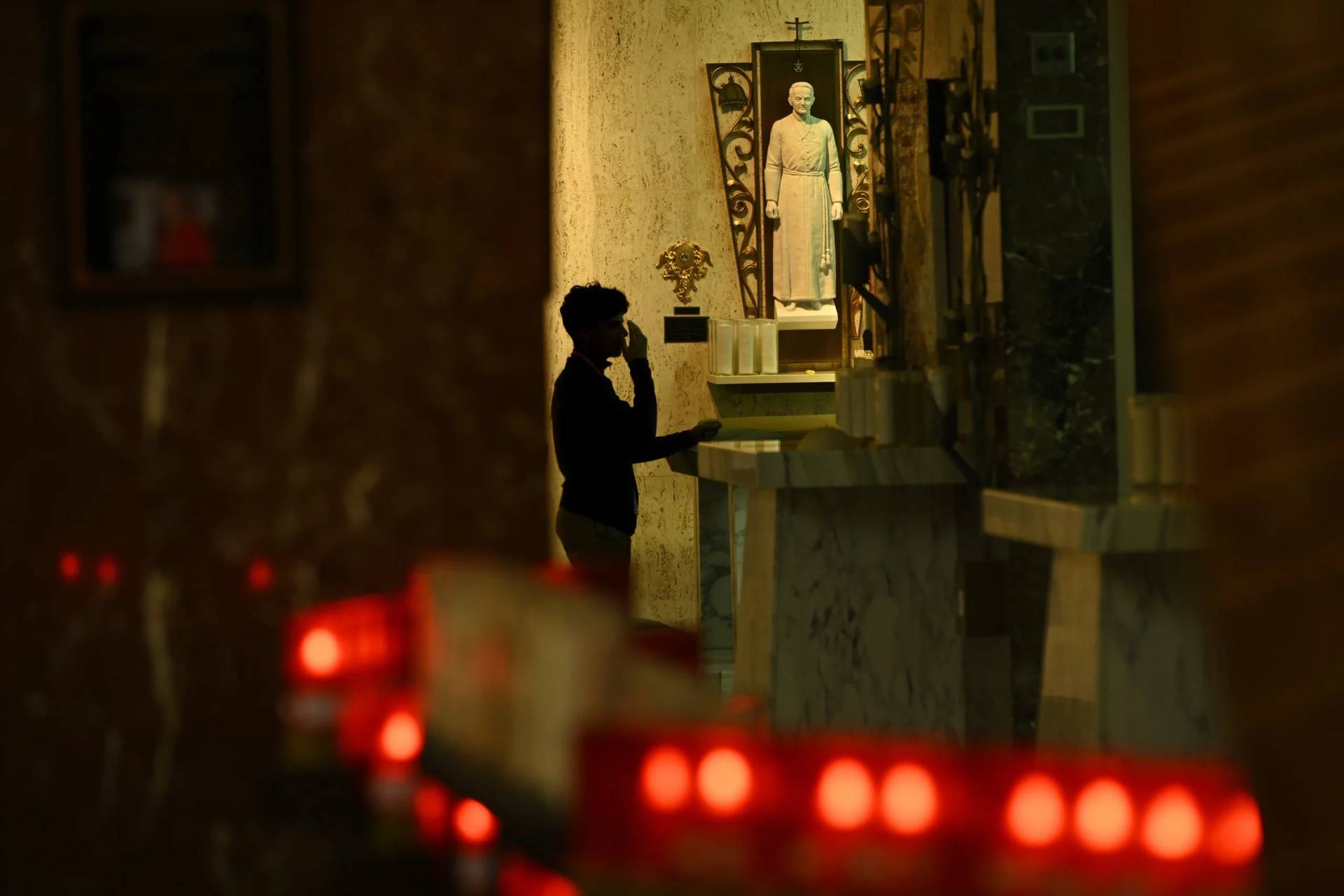Chinese President Xi Jinping says that China must be on guard against nefarious religious influences from abroad.
His comments over the weekend follow a tightening of religious space that has seen bans on the wearing of veils and beards in the predominantly Muslim region of Xinjiang and the removal of church crosses in eastern China.
“We must resolutely guard against overseas infiltrations via religious means and prevent ideological infringement by extremists,” Xi said at a Beijing conference on religions attended by top leaders, according to the official Xinhua News Agency.
Veteran China-watchers say such comments from senior government officials often signal a new cycle of harassment and vigilance.
Xi said that religious groups must submit to the leadership of the ruling, and officially atheist, Communist Party, and stressed: “In no way should religions interfere with government administration, judiciary and education.”
Authorities in eastern Zhejiang province have over the past two years torn down church crosses and other outward symbols of the Christian faith, saying they violated building codes. Critics say that’s a sign of how the rapid growth of Christian groups, at the same time as contacts between Chinese churches and overseas supporters have grown, has made the Communist Party nervous.
China’s leaders are also concerned about violence in the far western region of Xinjiang, and say many Uighurs are crossing borders to fight with the Islamic State group in Iraq and Syria with the intention of returning to carry out attacks in China.
Activists representing the Muslim Uighur group say much of the violence is fueled by economic disenfranchisement and restrictions on Uighurs’ religious and cultural practices.
Legally speaking, China recognizes five forms of religious expression: Buddhism, Taoism, Islam, Protestantism and Catholicism. Adherents of those religions are tolerated, but expected to worship under the auspices of a state-approved, and state-controlled, body which manages the affairs of those denominations.
For Catholics, this means the “Catholic Patriotic Association” and for Protestants the “Three-Self Patriotic Movement.”
Many Chinese Christians, however, refuse to submit to these official structures, ending up in what are often regarded as “underground” or “catacomb” churches. In truth, the boundaries between the recognized structures and the unofficial church communities are sometimes fuzzy; an estimated 90 percent of Catholics belonging to the state-sponsored bodies are thought to be loyal to Rome, just as roughly 90 percent of the “official” clergy are actually in good standing with the pope.
In recent years, the Vatican has promoted a policy of détente with the Chinese government and of healing the gap between the official and underground churches.
Unregistered communities and missionaries face severe difficulties. In 2014, the NGO “China Aid” documented 572 cases of persecution in which 17,884 religious practitioners were persecuted, representing a 300 percent increase since 2013.
Government officials have also stepped up their demands for “theological reconstruction”, meaning purging Christianity of elements which the ruling Communist Party regards as incompatible with its methods and priorities.
As of April 2016, there are two Catholic bishops and six priests either imprisoned or under various forms of detention and house arrest in China. Recently news reports suggested that 94-year-old Bishop Cosma Shi Enxiang had died in custody after more than 50 years behind bars off and on, though the government has issued no official confirmation of his death.
Despite the harassment, Christianity has been flourishing in China for some time.
At the time of the Communist takeover in 1949, there were roughly 900,000 Protestants in the country. Today, the Center for the Study of Global Christianity says there are 111 million Christians in China, roughly 90 percent Protestant and most Pentecostal. That would make China the third-largest Christian country on earth, following only the United States and Brazil.
The Center projects that by 2050, there will be 218 million Christians in China, 16 percent of the population, enough to make China the world’s second-largest Christian nation. According to the Center, there are 10,000 conversions every day.
Not everyone accepts these eye-popping estimates. In the 2006 update of his book Jesus in Beijing, former Time Beijing bureau chief David Aikman puts the number of Protestants at 70 million. Richard Madsen, a former Maryknoll missionary and author of China’s Catholics, puts the number still lower, at 40 million. That’s in line with the CIA World Factbook.
Even those conservative estimates, however, would mean that Protestantism in China experienced roughly 4,300 percent growth over the last half-century, most of it since the Cultural Revolution in the late 1960s and 1970s. Notably, Protestantism took off after the expulsion of foreign missionaries, so most of this expansion has been home-grown.
















